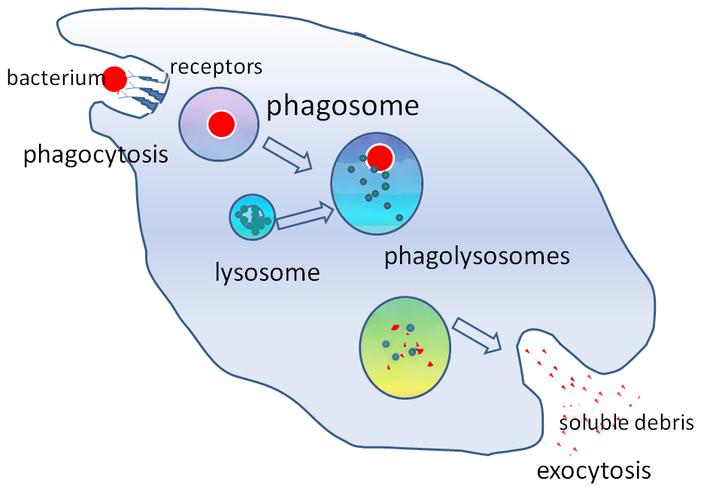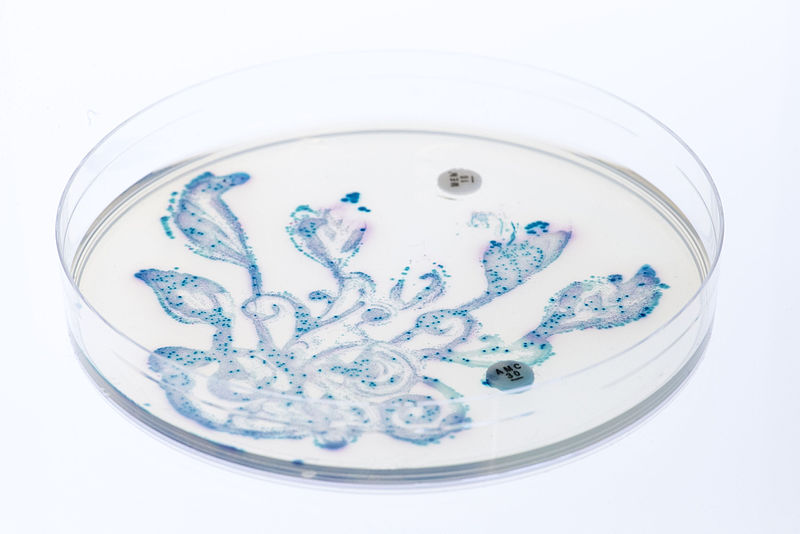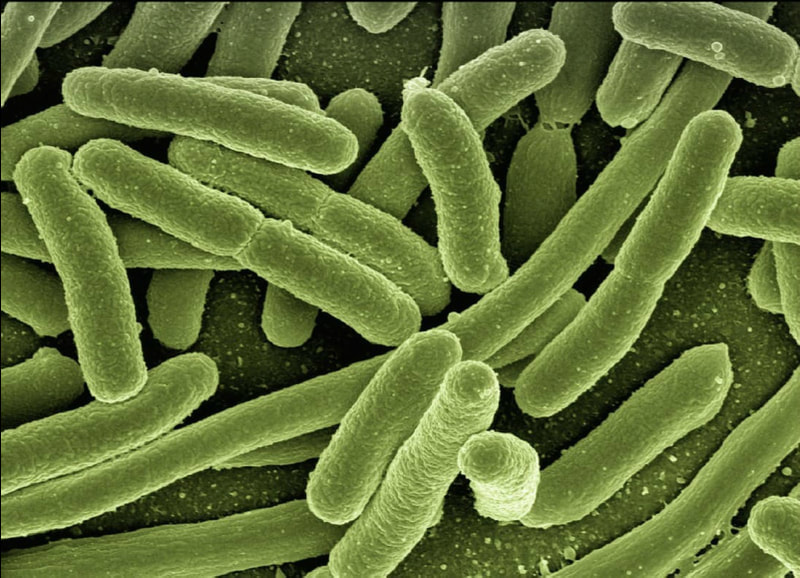Salt on the Wound for the Immune System
The standard American diet not only contains a high amount of fat and carbohydrates but also a considerable amount of salt. Table salt is a common seasoning made of a sodium ion and a chloride ion and is often simply referred to as sodium in terms of nutrition. Sodium is a necessary nutrient in a healthy diet, but if consumed in high amounts, it can have negative effects on the human body. The scientific community has been aware of how high salt consumption can lead to disorders such as high blood pressure. A research group at the University of Bonn in Germany has recently found that in addition to the adverse effects on the cardiovascular system, a high salt content may also weaken an important player in the immune system.
When individuals consume a high amount of salt, the body is still able to maintain a constant level of salt in the blood and organs. Much of the extra salt ends up at the skin. Prior to this study, the general consensus was that a high-salt diet results in a stronger immune system. This was due to the observation that macrophages in the skin were more effective in the presence of high salt. Macrophages are immune cells that engulf and destroy foreign entities, usually bacteria or parasites.
However, this study adds another consideration of the effect of high salt intake on the immune system. Not only does the extra salt consumed end up on the skin but a large portion of it is also filtered out by the kidneys. The kidney is an organ that filters the blood in the human body and is crucial to filtering out excess salt. There are sodium chloride sensors in the kidney that signal the kidney when there is salt to filter out. High sodium also is correlated with a buildup of glucocorticoids, which are a group of steroid hormones that suppress the immune response. The researchers found that glucocorticoid buildup hinders neutrophils, a type of granulocyte in the bloodstream that defends the body by engulfing and killing bacteria.
When individuals consume a high amount of salt, the body is still able to maintain a constant level of salt in the blood and organs. Much of the extra salt ends up at the skin. Prior to this study, the general consensus was that a high-salt diet results in a stronger immune system. This was due to the observation that macrophages in the skin were more effective in the presence of high salt. Macrophages are immune cells that engulf and destroy foreign entities, usually bacteria or parasites.
However, this study adds another consideration of the effect of high salt intake on the immune system. Not only does the extra salt consumed end up on the skin but a large portion of it is also filtered out by the kidneys. The kidney is an organ that filters the blood in the human body and is crucial to filtering out excess salt. There are sodium chloride sensors in the kidney that signal the kidney when there is salt to filter out. High sodium also is correlated with a buildup of glucocorticoids, which are a group of steroid hormones that suppress the immune response. The researchers found that glucocorticoid buildup hinders neutrophils, a type of granulocyte in the bloodstream that defends the body by engulfing and killing bacteria.
Image Source: "Simplified illustration of the stages of phagocytosis" by Graham Colm is licensed under CC BY-SA 3.0
Two experiments were performed to demonstrate that consuming too much sodium may leave the body more vulnerable to bacteria. Mice on high-sodium diets (HSD) and normal-sodium diets (NSD) were infected with equal amounts of listeria, a bacteria found in contaminated food and which usually presents with digestive distress. After three days, the scientists analyzed the spleens and livers of the mice and found 100 to 1000 times more listeria in the HSD mice than in the NSD mice. The second experiment compared humans that consumed six more grams of salt per day for one week than humans that were on NSD. For reference, six grams of salt is equivalent to the amount of salt in 1.5 to 2 typical hamburger meals. The neutrophil-containing blood samples from each group were tested for the ability to engulf and kill uropathogenic Escherichia coli (UPEC), a strain of E. coli bacteria. The neutrophils in the HSD samples killed less UPEC compared to the NSD sample neutrophils. Overall, the study revealed more about the complex nature of how salt can affect the immune system that will require further investigation.
Although the World Health Organization recommends five grams of salt or less per day for adults, the Centers for Disease Control and Prevention, 90% of Americans exceed this limit. As a result, this research emphasizes the importance of being aware of daily sodium intake in order to not only have a balanced diet but also to protect the immune system functioning.The human body is filled with dense and complex pathways, so there is likely even more to discover about the potential consequences of a high-sodium diet.
Although the World Health Organization recommends five grams of salt or less per day for adults, the Centers for Disease Control and Prevention, 90% of Americans exceed this limit. As a result, this research emphasizes the importance of being aware of daily sodium intake in order to not only have a balanced diet but also to protect the immune system functioning.The human body is filled with dense and complex pathways, so there is likely even more to discover about the potential consequences of a high-sodium diet.
Featured Image Source: RitaE
RELATED ARTICLES
|
Vertical Divider
|
Vertical Divider
|
Vertical Divider
|






